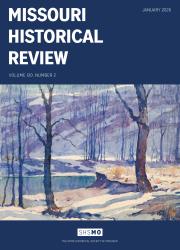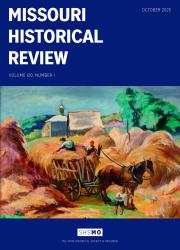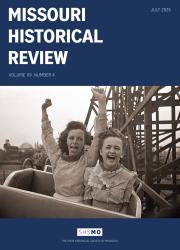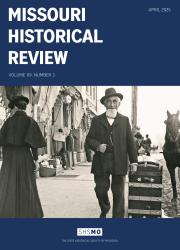The Missouri Historical Review, an award-winning scholarly quarterly, has served as the cornerstone of SHSMO's publication program since 1906. This richly illustrated journal features current scholarship on all facets of the state's history. The Missouri Historical Review also contains reviews of and notes on recently published books about the history of the state and local areas and the lives of Missourians.
Subscribe to the Missouri Historical Review
Receiving the Missouri Historical Review is one of many benefits of becoming an SHSMO member. You can also make a contribution directly supporting the journal.
Copies of the current issue may also be purchased for $5 per copy at the State Historical Society of Missouri's Ron & Patty Richard Bookstore or online at https://shop.shsmo.org/missouri-historical-review/. Some past issues are available for sale; please inquire through the bookstore.
Issues
Editorial Information
Article Awards
Missouri Historical Review Article Award
-
James W. Goodrich and Lynn Wolf Gentzler Missouri Historical Review Article Award
The James W. Goodrich and Lynn Wolf Gentzler Missouri Historical Review Article Award is presented annually to the author of the article best contributing to an understanding of Missouri history published in the most recent volume of the journal.
Mary C. Neth Prize
-
Mary C. Neth Prize
The Mary C. Neth Prize, created in memory of a professor in the University of Missouri–Columbia Department of History who specialized in women’s history, is given biennially (in odd–numbered years) to the author of the best article on women or gender issues appearing in the preceding two volumes of the Missouri Historical Review.




